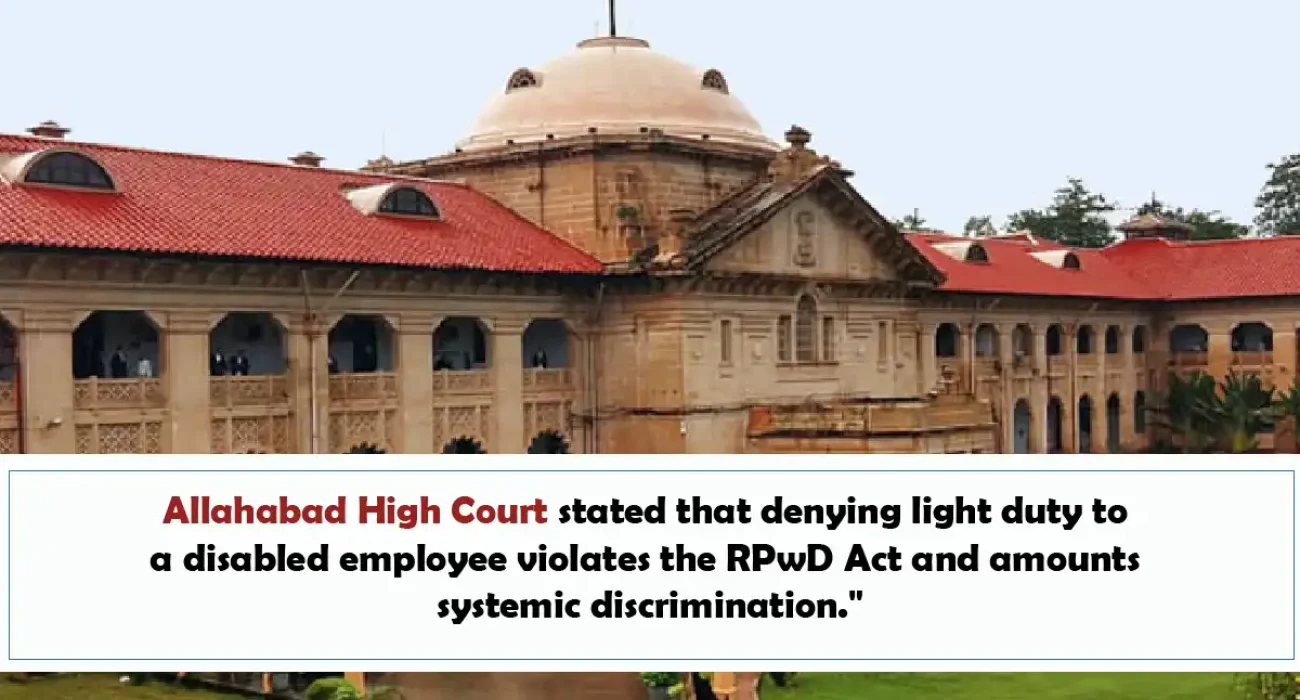

Table of Contents
ToggleThe petitioner, employed as a bus driver with the respondent‑corporation, sustained a locomotor impairment during the course of service. After submitting a detailed representation to the authority, the petitioner was examined by a duly‑constituted Medical Board headed by the Chief Medical Officer, Hamirpur, which certified a 40 percent disability of the left arm, left leg in accordance with Guidelines issued by the Government of India (S.O. 76(E), dated 4 January 2018). The Chief Medical Officer expressly recommended “light work” and characterised the condition as temporary and curable. However, the corporation neither reassigned the petitioner, nor disbursed salary from March 2022 onward. A second Medical Board later confirmed the same extent of disability and reiterated the advice to allocate light duties. The corporation nonetheless declined redeployment of the petitioner, citing the alleged absence of suitable light‑duty posts. Aggrieved by this, the petitioner filed the writ petition in front of this Court.
As an interim measure, the Court, by order dated 20 February 2025, constituted another Medical Board comprising specialists from King George’s Medical University, Lucknow. Its report of 12 March 2025 again confirmed a 40 per cent locomotor disability within the meaning of the Rights of Persons with Disabilities Act, 2016 (RPwD Act). Despite these unambiguous medical opinions, the petitioner remained without assignment or remuneration, necessitating the present proceedings.
Upon carefully considering the pleadings and the medical evidence, the Court held that the petitioner has suffered a 40 per cent locomotor disability, bringing the case squarely within Schedule I of the Rights of Persons with Disabilities (RwPD) Act, 2016. The Bench censured the corporation’s stance, remarking that
“The correspondences of the department not only disclose non‑application of mind, but also display callous attitude to the plight of an employee who is suffering from disability, and a disconcerting disregard for the law.”
The Court further noted that the corporation’s failure to identify and earmark posts suitable for persons with disabilities constitutes a direct violation of Section 33 of the RPwD Act, observing:
“Failure of the respondents to identify posts which can be held by respective categories of persons with disabilities will not only violate Section 33 of the Disabilities Act, which is a mandatory provision of law, but will have a further cascading effect. Non‑compliance of
Section 33 of the Disabilities Act will also create a discriminatory regime against persons with disabilities, which is contrary to the avowed object of the Disabilities
Act.”
Further highlighting the essence of Section 33 of the Act, the Court observed that
“…the absence of clearly identified posts for persons with disabilities, will negate the equal opportunity which is contemplated in Section 21 of the Disabilities Act. In short disabilities under the Disabilities Act will be subverted if the scheme of equality in employment for persons with the mandate of Section 33 is frustrated.”
Additionally, the Court while noting that the Respondent corporation cannot be allowed to take advantage of their omissions to deny the rights vested in the petitioner by law. “The rights of persons with disabilities cannot be transgressed on account of the failure of the respondent authorities to comply with the said provisions of the Disabilities Act.”
The Court directed the Respondent corporation to give the petitioner a suitable light‑duty post and to pay arrears from March 2022 up to the date of last payment, with interest of 7%. In addition, the Managing Director, Uttar Pradesh State Road Transport Corporation, Lucknow, was mandated to ensure that all officers are sensitised to the rights of persons with disabilities under the RPwD Act through appropriate orders and training programmes.
Written by Adv. Prerna Murarka
IAW resources
Browse our help directory